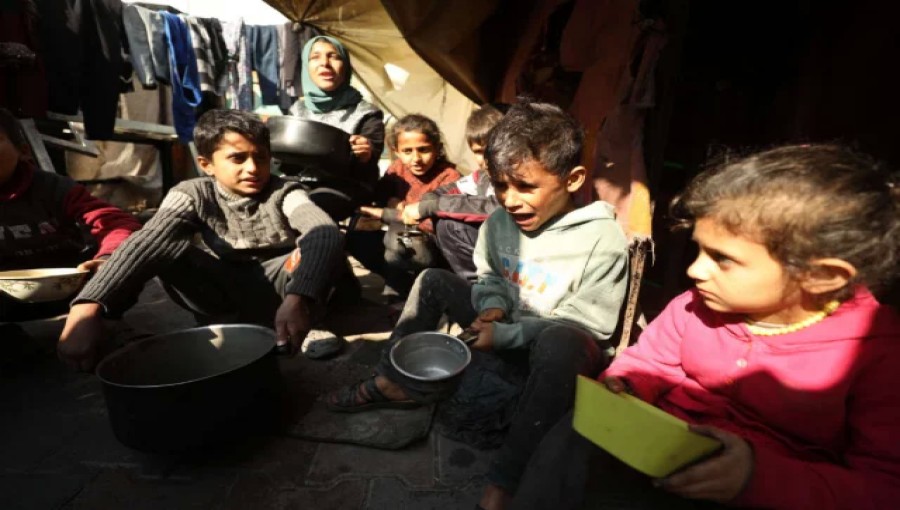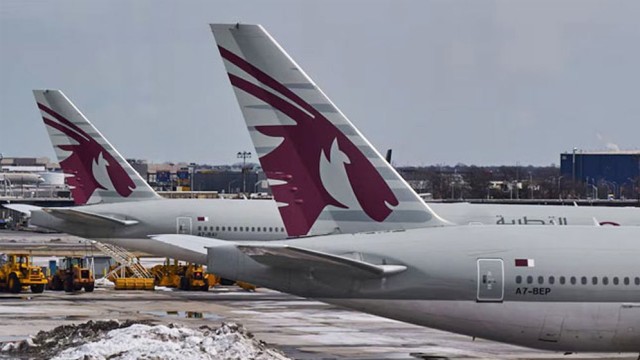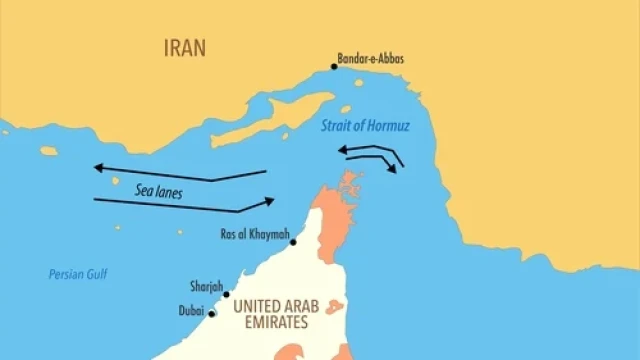The United Nations-backed Integrated Food Security Phase Classification (IPC) has issued a dire warning, stating that famine could grip the northern Gaza Strip by May, potentially spreading to other areas by July. This alarming projection comes after more than five months of relentless Israeli aggression and massacres in the region.
According to a report published by the IPC on Monday, obtained from the British news agency Reuters, approximately 300,000 people are trapped in the conflict-ridden northern part of Gaza. This has exacerbated the already dire situation, leaving a staggering 1.1 million people across the valley on the brink of starvation, representing half of Gaza's total population.
The report highlights the alarming rise in malnutrition and food insecurity, which are rapidly approaching famine levels in northern Gaza. Tragically, hunger-related deaths are expected to surge if immediate action is not taken to address the crisis.
The IPC further predicts that unless the current trajectory changes, famine conditions may manifest between March and May, exacerbating the already dire humanitarian situation in Gaza.
Meanwhile, European Union (EU) foreign policy chief Josep Borrell has squarely blamed Israel for the impending famine. Speaking at the opening ceremony of the European Humanitarian Forum in Brussels on Monday, Borrell accused Israel of weaponizing famine as a tool of war. He lamented, "We are no longer on the brink of famine in Gaza; we are now in the midst of a famine that is affecting thousands of people," describing the situation as "totally unacceptable."
In addition to the looming famine, the United Nations Children's Fund (UNICEF) has raised concerns over the doubling of severely malnourished children in the Gaza Strip due to Israeli aggression. The agency revealed that within just one month, the number of children suffering from severe malnutrition has doubled, with many of them lacking even the energy to cry.
UNICEF also reported that over 13,000 children have perished in Gaza during the past five months of brutal Israeli attacks, further underscoring the humanitarian crisis gripping the region.
The current escalation in violence began on October 7 last year when the Hamas government of Gaza launched a major military operation against Israel. In response, Israel initiated mass killings in Gaza, resulting in the deaths of over 31,000 Palestinians, predominantly women and children, and leaving over 70,000 others injured.
Western nations, including the United States, the United Kingdom, France, and Germany, have faced criticism for their tacit support of Israel's actions, while countries like Bangladesh, China, Russia, and Iran have vehemently condemned the ongoing genocide in Gaza.
As the humanitarian crisis worsens, urgent international intervention is imperative to prevent further loss of life and alleviate the suffering of the Palestinian people in Gaza.































Comment: